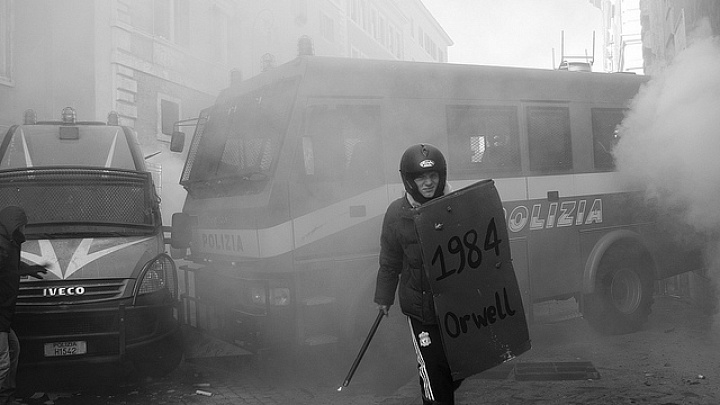
In his celebrated recent book of short stories, Redeployment, Phil Klay takes the imbroglio that was the Iraq War and turns it into the pulsing sum of very individual experiences. His characters do not necessarily understand the entirety of the situation any better than the typical reader, but, assembled as they are in this book, they assume a collective force that at its best facilitates an appreciation of just why the invasion and occupation were so difficult to get a handle on.
The effectiveness of the effort, along with the chord it struck with the general reading public, puts into stark relief that, as a military operation lasting for almost eight years, Iraq has until recently had a curiously flat impact on the broader American culture. With this book (alongside, in another medium, the recent success of the film American Sniper), it seems the mood may be shifting.
Klay does not portray his characters through rose-tinted glasses, which helps the verisimilitude of his stories. And he can be very funny, which helps the readability of them. The priest serving as a chaplain for a combat arms company (in “Prayer in the Furnace”), the Foreign Service officer trying to get a water treatment plant back up and running somewhere north of Baghdad (in “Money as a Weapons System”), the guy who’s served as a Mortuary Affairs Officer in the Marines (in “Bodies”), which means he was an administrator for the dead, and the soldiers in various states of the deployment/redeployment cycle—these characters whose values have been compromised, and who want badly to see things in black and white, but can’t. They commit very human transgressions that make them relatable, and in doing so give the Iraq War a universality which it has been largely missing up until now.
Writers write what they know, and today most Americans, writers included, do not know the Iraq war very well. Writers like Hemingway and George Orwell sought war out as fodder for their work. Whether fighting or not, these writers existed thoroughly within history.
World War II and to a lesser extent Vietnam, on the other hand, became cultural touchstones out of the gate, so enduring that even the generations that came long after apparently have not exhausted the material. To wit: Philip Roth’s The Plot Against America, which imagines an alternate history in which FDR is defeated in 1940 by Charles Lindbergh, with attendant geopolitical implications; Ian McEwan’s Atonement, a 21st century novel of unrequited love and guilt in wartime France and England; Jonathan Littell’s The Kindly Ones, controversially narrated by a Nazi SS officer; most recently, Martin Amis published The Zone of Interest, a love story set at Auschwitz in the early 1940s—amongst the Nazis, not the prisoners, another controversy. Even some novels we think of as World War II classics actually belong to later a decade. Catch-22 was published 16 years after that war ended, and Slaughterhouse Fivea full 24 years later, in 1969. Gravity’s Rainbow brought us into the postmodern era by recycling the same subject matter. Denis Johnson’s Tree of Smoke, about Vietnam, came out in 2007 to wide acclaim and won the National Book Award for that year.
The relative lack of literary interest in Iraq reflects a culture that does not come up against the topic in any direct way very often. Writers write what they know, and today most Americans, writers included, do not know this war very well. Without the national draft, which ended in 1973 toward the end of the Vietnam War, entire segments of society do not know anyone who has served in Iraq. In fact, less than half a percent of the population currently serves in the armed forces, while during World War II, a full 12 percent of Americans did so. Those who do serve are drawn d
